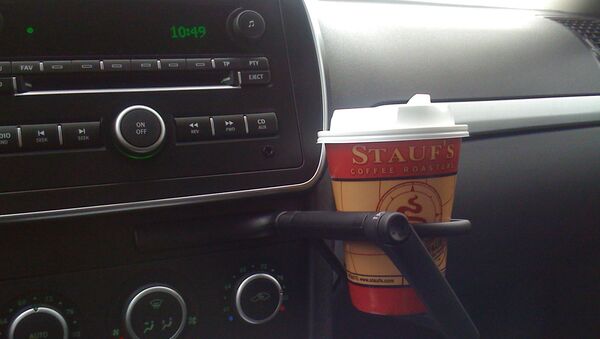In Israel, Cofix charges $1.32 (82.25 rubles) for each item, making Moscow a real bargain.
“The prices range from 180 rubles ($2.89) to 250 ($4) and 300 rubles ($4.81), while their actual cost is maybe 25 rubles. It’s a big, big difference,” he said, adding that this was probably why up to 60 percent of people in Moscow simply can’t afford eating out.
“What is a coffee shop? It sells coffee, cakes, juice, bread and everywhere else, be it London, Berlin or Jerusalem, the actual cost of these things to the owners is generally the same. If you take, Britain, Israel and Moscow, there is a big difference here from London or Jerusalem. In Moscow I have opened a coffee shop where you pay 50 rubles for a cup of coffee, a cappuccino, fresh juice, a sandwich, a cake, everything. It’s a big, big difference!”
Cofix shops are a pick-up and go business, unlike Starbucks, where customers can sit and work for hours.
“If you need time to sit in a coffee shop for hours with your laptop drinking coffee and eating a cake, ok, you pay 200 rubles,” he said.
Avi Katz said that Russia was the first foreign market his company invested in.
When asked what makes the Russian market attractive to him as an investor, Avi Katz said that in Russia he has two big partners, one of whom has been working in the Russian food market for 22 years.
“In Russia if you have money you can come in and change the market. This month I have opened three coffee shops in the best locations in Moscow,” Avi said, adding that he was hoping to have 100 locations working in Russia by mid-2018 and 1,000 within the next five years.
Two years after oil prices tumbled and Western sanctions against Russia were imposed the Russian economy is once again attractive to investors.
In 2016, the Russian Micex stock index has increased by 25 percent, making Russia the six-best performer among 23 emerging economies tracked by MSCI.



